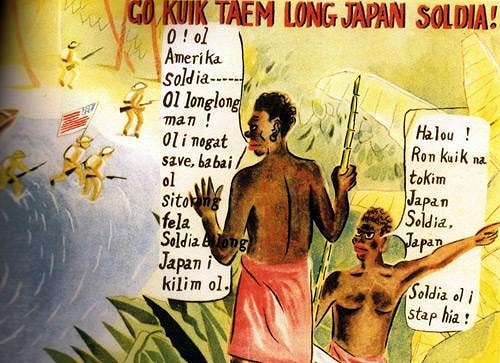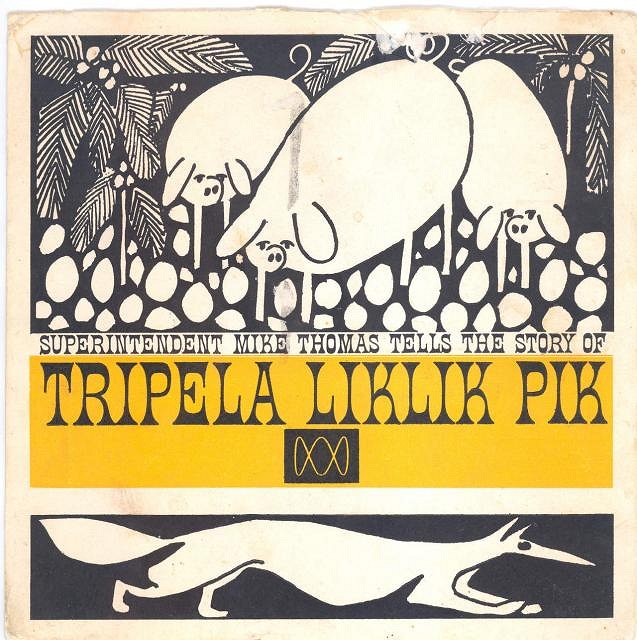Tiki Central / General Tiki / WWII - the New Guinea Campaign and images from the island
Post #512866 by bigbrotiki on Tue, Feb 23, 2010 3:45 PM
|
B
bigbrotiki
Posted
posted
on
Tue, Feb 23, 2010 3:45 PM
Great vintage photos, Babalu and Tiki Shaker, and Mr. PuPu! Love the mural, it says it all. Can you make out what was in those cages/display cases in the Bamboo Room? I must say I have been waiting for someone to say something about this great rendering on the previous page:
and the concern by some folks that it is some kinda racist joke. I am no authority on the language of "TOK PISIN", but I knew of it, and am glad to help clear up (with the help of a few googled links) this misconception: "Tok Pisin is one of the three national languages of Papua New Guinea. It is a form of Melanesian Pidgin English that was developed in the early 1800's as a result of increased travel and economic activity between the Melanesians and Europeans, and is still used today as one of the most dominant and universal languages in the country of Papua New Guinea. In a country that is said to have over over 800 languages still in existence, Tok Pisin is and integral part of communication for almost all native citizens." It often DOES sound like a the cliche idea of a naive native speaking childish English, but it is a veritable language. And it DOES sound very funny, sometimes! Here, as an example, some helpful hotel phrases: May I see the room first? Do you have anything quieter? And here's the story of the Three Little Pigs = Tripela LikLik Pik
You can listen to it here: http://www.abc.net.au/local/stories/2007/09/18/2036578.htm Numba tu pik! Though one almost has to see the words, and then try to read them to get the funny likeness to known words. A restaurant is called "Haus Kai Kai" , which is German/Polynesian haus moni - bank (from "house money") [ Edited by: bigbrotiki 2010-02-23 17:32 ] |


